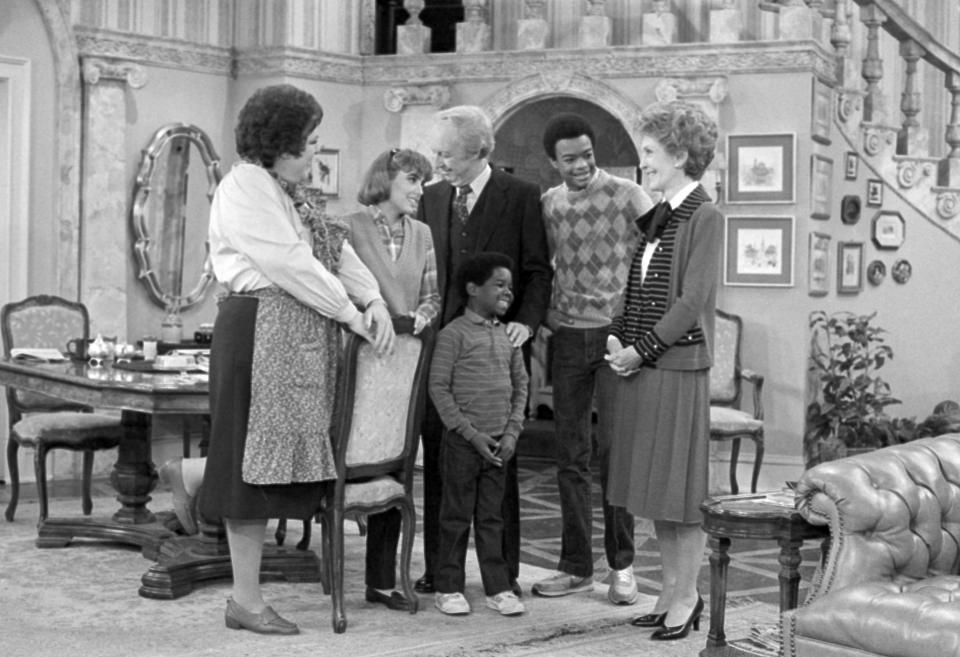Walter Suza guest column: In ‘Diff’rent Strokes,’ a model for courage with our own families
“It takes, Diff'rent Strokes to move the world.”
The quote is from the theme song of the sitcom “Diff’rent Strokes,” which first aired in 1978 with a cast of three child stars, Gary Coleman (Arnold Jackson), Todd Bridges (Willis Jackson), and Dana Plato (Kimberly Drummond). Conrad Bain appears as Phillip Drummond, a wealthy New York businessman and Kimberly’s biological father.
It is unfortunate that many child stars would grow up to face tragic lives. “Diff’rent Strokes” has its own heartbreaking stories. In spite of this, the joy from watching the show with my siblings is something I’ll always cherish.
I remember bursting into laughter each time Arnold spoke in his child's, yet deepened, voice, “Watchoo talking about, Willis?” when Willis might have said something seemingly ludicrous. Arnold evoked in me more laughter by lowering his chin, frowning his face, and widening his eyes, to accompany “Watchoo talking about Willis?”
More: Walter Suza guest column: Racism can be defeated only with a change of heart
Yet “Diff’rent Strokes” is more than just entertainment. The show was also an attempt to address racial inequality through love and compassion. Drummond made a promise to his late Black housekeeper, Willis and Arnold’s mom, that he would take care of the kids. So he takes the kids out of Harlem to live with him and his daughter in his opulent comfort in Manhattan.
Rewatching the show today reveals the unintended arrogance in Drummond to think that, by adopting the Black kids, he would erase their racial inequality challenges. But the white man remains convinced in the show that he has the best to offer. He even declares that he loves the Black kids.
Then there’s conflict. Willis makes it known that he doesn't want Drummond’s charity. Even though Harlem sounds desolate, as we are reminded by Arnold frequently during the show, Willis remains proud to hail from Harlem.
Things escalate. Drummond feels crushed after Willis and Arnold request to be transferred to live with a Black family. Yet something remarkable happens. Drummond steps back to reflect on what might have been his error. He lets the kids know that all he wants is what they think is best for them.
The conflict cautions us against the “white savior complex,” often expressed as our beliefs that we have the best intentions and solutions for the underprivileged. We have the heart and understanding to do what's right for the poor. We think adopting Black kids into white homes will give them a better life. Yet we fail to realize that the kids we try to “save” might face racism in our own homes and communities.
More conflict arises with Drummond’s mother being less accepting of Arnold and Willis. This is another part of the show where I became impressed by its emphasis on the importance of discussing with the ones we love their parts in perpetuating racism.
Drummond confronts his mother: “The only reason I’m telling you this, Mother, is because I love you. … Your values are a thing of the past. It’s time you learn to accept people for what they are. Not for what you’d like them to be,” he says.
The show made the conversation appear easy, yet it will be difficult in real life. Nonetheless, “Diff’rent Strokes” still tries and the result is hopeful. Drummond’s mom overcomes her prejudice and embraces Arnold and Willis.
It doesn’t end there. In another episode, Drummond confronts a white male principal at his former school for showing prejudice toward the Black kids. Here the show teaches us that white people calling out other white people is critical in the fight against systemic racism.

Here we are, awaiting Thanksgiving. Even though I have written about the controversy surrounding Thanksgiving, I want us to consider spending the holiday a little differently this year.
For some of us, this might be the time we realize we have taken the holiday for granted, we thought we'll always have the time to celebrate with family and friends. Yet here we are, awaiting Thanksgiving in our new world of horrendous pandemic deaths, racial strife, political polarization, escalating hate.
It's understandable we might refrain from politics and religion during Thanksgiving. We might choose instead to be more intentional to stay closely connected with our loved ones, even though deep in our hearts might live burdens from wars on America’s public health and politics.
Are we going to try to hide the elephants in our hearts? Whether the beast be racial injustice, disregard for our rights, our identities, our concerns with COVID-19? Are we going to remain silent and sweep the elephant under the rug because it's Thanksgiving?
It is my hope that we will choose to bring the beast to light. But what guidance must we follow? If we decide to talk about racism, “Diff’rent Strokes” will be a good place to start.
May we all find the courage to dismantle racism.

Walter Suza of Ames, Iowa, writes frequently on the intersections of spirituality, anti-racism and social justice. He can be contacted at wsuza2020@gmail.com.
This article originally appeared on Ames Tribune: Opinion: In ‘Diff’rent Strokes,’ a model for courage with our families

